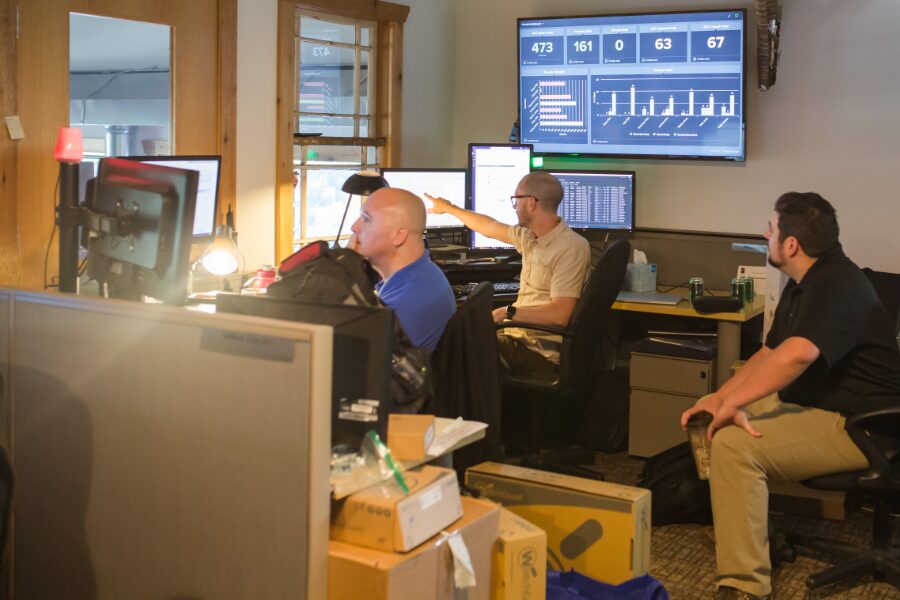Attention Shoppers: Walmart is Moving to the Cloud
The days of retirees taking jobs as Walmart greeters might be coming to an end.
With the announcement last year by the world’s largest retailer that it was shutting 154 stores and laying off 16,000 workers, the company made a sea of change in its brick and mortar operation to challenge the giant of e-Commerce: Amazon.
And it’s not stopping there.
Walmart has also open sourced OneOps, its cloud management tool used internally to run the infrastructure that underpins its e-commerce sites.
Now any company will be able to use Walmart’s software to create, manage, and migrate applications across multiple cloud computing infrastructures, including Amazon, Microsoft’s Azure, and Rackspace.
The point here isn’t to hobble Amazon’s cloud business, known as Amazon Web Services, which is relied on by hundreds of thousands of companies, including rivals like Netflix, to host and support their information technology infrastructure. The goal for now, they say, is to help these companies break their dependence on Amazon. And they have reiterated that push with their vendors after Amazon’s recent acquisition of Whole Foods.
This statement may have some truth to it, but Walmart has not assumed its dominant position in retail by sharing the ingredients of its success with competitors. This time, Walmart is sacrificing profit to the greater goal of impeding Amazon’s performance.
Walmart has the money to wage a winning war with the right moves. Its revenues of $482 billion in 2016 dwarf Amazon’s $136 billion.
So far, something is working. Wal-Mart grew its e-commerce sales by a whopping 63 percent during the latest quarter, compared to 29 percent growth last quarter.
Walmart didn’t say how much money it generated from its digital business. And Walmart is still smaller than Amazon online. But the pride of Bentonville, Arkansas, is catching up fast.
In recent prepared remarks, CEO Doug McMillon said that Walmart was the second-largest online retailer in America by sales and that the Walmart mobile app is among the three most popular retail apps.
Last year, Walmart bought the e-commerce startup Jet, which also owns online furniture seller Hayneedle, for $3 billion. Walmart has also expanded its online grocery business. It offers curbside pickup and home delivery in some places.
The company also acquired ShoeBuy, a competitor to Amazon-owned Zappos, and Moosejaw, an online retailer of outdoor apparel and sporting equipment.
Walmart.com is also preparing to launch a new feature called “Pickup Discount” that will lower the prices on up to one million online-only items if customers choose to pick up their order at a local store instead of opting for shipping.
Initially, the feature will be available on around 10,000 online-only items — meaning those that aren’t sold in stores, but that would have to be shipped to either a store or a customer directly. During this summer, Walmart says the discount expects to reach more than 1 million of the site’s most popular items.
Regardless of who wins this battle in the clouds and on-line, the participants are no longer just Amazon, Apple and Microsoft. Walmart has its jersey on and is entering the game.
About the Digital Transformation Series:
Over the next few months Applied Tech President and CEO Kurt Sippel will be exploring “Digital Transformation” in a series of articles with the hope to inform, educate, and discuss its many different facets. Digital transformation is the profound and accelerating transformation of business activities, processes, competencies and models to fully leverage the changes and opportunities of digital technologies and their impact across society in a strategic and prioritized way, with present and future shifts in mind. Kurt will explain how this effects your business, how to best prepare and how to leverage the technology to get the upper hand on your competition.
If you would like to be notified of the upcoming articles sign up below!
[formidable id=”23″]
About Kurt Sippel:
CEO Kurt Sippel began his technology career at age 18 when he began providing consultation services to various small businesses in Fond du Lac County. This was followed by eight years at the University of Wisconsin-Madison where he managed and taught research technology while pursuing a Master’s degree in urban and regional planning.
In 1999 Kurt left the university to start his own firm, Applied Tech Solutions Inc. to focus on the technology needs of small and medium sized businesses. Applied Tech is now the leading IT managed service provider in Dane County and has offices in Madison, Waukesha and Stevens Point.






